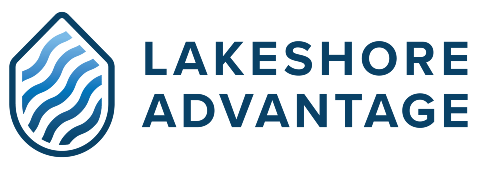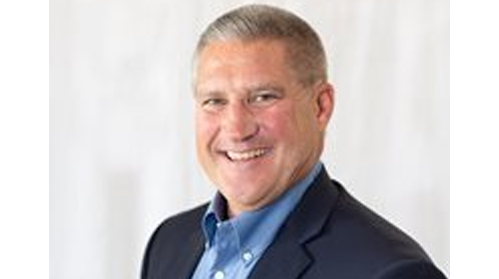Creative Dining President & CEO Jim Eickhoff Serves Up Insight on Leadership, Sales Strategy and Employees as Family
 Jim Eickhoff joined Creative Dining in 2015 after 35 years of senior executive leadership experience at Fortune 200 companies across the US, including the University of Phoenix/Apollo Education Group, Sallie Mae, HOSTS Learning, and The ServiceMaster Company. Under Jim’s leadership, Creative Dining has experienced 25% growth and leapt to the 24th largest food service management company in America.
Jim Eickhoff joined Creative Dining in 2015 after 35 years of senior executive leadership experience at Fortune 200 companies across the US, including the University of Phoenix/Apollo Education Group, Sallie Mae, HOSTS Learning, and The ServiceMaster Company. Under Jim’s leadership, Creative Dining has experienced 25% growth and leapt to the 24th largest food service management company in America.
Jim is the first non-founder serving as President & CEO. He is focused on excellent client experiences, providing outstanding dining programs with the highest level of customer service and integrity. Employee engagement and development are vital to Jim; he is committed to upholding a company culture of family while coaching employees to their unique strengths and potential. Jim looks forward to growing the business to serve even more delicious cuisine to satisfied customers. Jim received his B.A. in English and Secondary Education from Hope College in Holland, Michigan.
Interview:
Q: Jim, in your 35 years of Senior Executive leadership experience, what has been one lesson that you’ve been able to pass along? Talk to us about company culture. What are some values that you and your team live by?
A: One of our key core values is family. Our trademark is to take on the clients’ branding and culture – no Creative Dining Services logos on uniforms, menus, disposables, etc. We want to become part of their family! Our dining and hospitality team is expected to act and live out their work life as if they were employed by our client. So, we encourage our staff to participate in fundraising events, sports, performing arts or social activities. Oftentimes when we attain a new piece of the business, the employees have been working for another company. During my transition visit with a new client I tell the team that I am looking forward to them welcoming me and leadership into their “home”. I thank them for having us into their work family.
Additionally, there is lots of discussion about accessibility to leadership. I provide all staff members in the organization with my personal work email along with my mobile phone number so that I can be available to talk or exchange ideas. Being in 14 states and having a roster of 2,000 employees, it is difficult to be in person to listen and share with our teams. In this vein, we send out a Weekly Digest newsletter to our leaders to share inspiration, news and trends that are relevant to our business and hold a weekly “Unscripted” video conference call to gather people together in a town hall type of environment that has no agenda, no planned monologue but simply an open forum for employees to ask questions and seek best practices from their peers. A key performance indicator that we report to the Board is the number of visits our executive leadership makes out with our customers.
Q: After graduating from Hope College you ventured outside of Michigan for work and now you are back. What sets working on the lakeshore apart from other areas in the US?
A: What my wife and I continue to pinch ourselves over is that we live in a resort setting here in West Michigan. Beautiful bodies of water, a strong four-seasons of the year experience and a location that allows a reasonable drive to delightful destinations in Michigan, Chicago, Indianapolis, etc.
West Michigan is home to highly cooperative companies who see the value of collaboration, treating employees well, and doing business ethically and sustainably. Accessibility to these organizations’ leaders sets up an atmosphere of collaboration and mentoring. Pooling together the experiences and people resources of all these organizations establishes the roots of success and influence on a global playing field.
Q: Under your leadership, Creative Dining has experienced significant growth and has leapt into the top 25 largest food service management companies in the US. To what would you most attribute this success?
A: First and foremost, we reset our focus on the fundamentals: Yummy food that blends both comfort and on-trend offerings; keeping “high touch” as part of our day-to-day efforts, shifting all foundational business functions from paper/pencil to cloud-based, real-time systems; a focus on retaining current business portfolios; some organizational restructuring so that team members can match their strengths to their responsibilities (most folks were miss-aligned and struggled, now they are fulfilled).
Our growth can be tied to clients who are desperate for hospitality partners who don’t play games and deliver personalized dining programs. So many dining programs today are off the shelf, one-size-fits-all and the personality and uniqueness has been sucked out of them because of cost cutting pressures.
Our clients – corporations, colleges, and even adult living communities – are eager to express their unique culture and brand inside their dining areas. They don’t want what everyone else has. They see a personalized dining experience as a competitive edge, and we do too.
When it comes right down to it, we are honest. We’re always looking for ways to improve the diner experience. We’re candid about where there’s opportunity for improvement and how we are addressing and improving it. We are transparent – we provide customers with data, suggestions and services in the way they want it. We are flexible – we personalize our services to the unique needs and nature of the client’s business.
Q: Many area companies are citing increased sales/marketing efforts as a top priority post-COVID shutdown. You’ve run large sales teams over the course of your career. What considerations should companies make as they venture into turning up their sales efforts?
A: My honest piece of advice here is not to “out fancy” yourself. If you Google “sales strategies,” there will be over 1.4 billion suggestions. It is overwhelming. In my experience, it comes down to first and foremost, being honest with yourself when it comes to the sales/marketing disciplines at your company. Is the foundation in place that allows you to pivot in times of crisis, keep the momentum going when times are “great” and do you have the right people directing the sales/marketing effort? I have lived by five key factors that have to be in place in order to have a winning strategy:
- Clear on your core competencies and deliverables: Don’t sell something you don’t have or can’t do.
- A list of key “funnel” elements to determine prospects that in turn either qualifies or disqualifies a prospect: I.e. geography, size of prospect, culture match, production capability, etc.
- A contact management system that will organize all sales/marketing efforts from first activity to marketing campaigns to winning the deal that then can be transitioned to operations.
- A sales and marketing plan: Written down and revised each year.
- Proposal design that has all…really mean it…all stakeholders involved in the creation of the deal.
To help keep our organization honest with itself, I have always sought out a detached (not internal) group or person that can review what we have been doing. Every year, Rock Robinson of Sales Xceleration reviews and audits our plans, goals, sales target, etc. to ensure we don’t get blind-sided because we are too close to it all and maybe not willing to admit to changes/enhances that need to be made.
Q: Recently you partnered with a new healthcare provider that is projected to save your company half a million dollars in the first year alone while also greatly benefiting your employees. Is it difficult to hold the tension of taking good care of your employees and taking good care of your company fiscally?
A: We always have pressure to get that Return on Investment (ROI) in all that we do in our business. I want to create a culture that has a Return on People (ROP). Healthcare coverage became a ROP initiative. Finances were a symptom, with escalating premiums from the big box players at 15% increases annually. What drove my direction to our team to look into a self-funded health coverage plan was our employees. Over time, costs were getting higher and coverage more restrictive. Plus, we had no control to personalize our plan. We have significantly better premiums and coverage plans that have resulted in lower costs to employees along with a savings overall to the company.
So, no this was not a difficult choice or long-term strategy to achieve significant financial savings at the cost of sacrificing our commitment to our employees. As President & CEO I am charged with the responsibility of achieving our financial goals and objectives for the sustainability of our 30 year organization, but I am also charged with the responsibility to uphold our core values, specifically, “family”.
Q: You have vocalized the importance of inclusive hiring. In the wake of the current conversations on race, how have you utilized this hiring methodology to continue to bring Creative Dining into deeper levels of diversity and inclusion?
A: Creative Dining Services has always had a commitment to diversity, equity and inclusion. Our mantra has been “everyone has a seat at the table whose uniqueness as God’s creation should be celebrated.” However, I am fully aware in the current conversations on race and that we can and will do better as an organization. This year we have committed to build a framework around Diversity, Equity and Inclusion with specific measurable outcomes as it relates to recruitment, hiring, career pathways, and promotions. Our Board of Directors and key members of my Cabinet are succinctly aligned on this strategy and its deliverables.
Q: What is a book that you’ve read or an influencer that you watch that has made you a better leader?
A: Max DePree’s book, Leadership Jazz, has had an impact on my leadership style. Max called it “matching one’s voice to one’s touch.” Leaders can easily fall into the trap of pontificating best practices, beliefs and behaviors but their actions don’t back up their words. People can see through this disconnect pretty quickly. As a result, I have asked my direct report group to call me out if I am not matching “voice to touch” in my dealings with them, our employees and our partners.
Q: You and your company give back in many impactful ways. Can you share why it’s a priority to Creative Dining Services to invest in economic development?
A: We would not be the organization that we are today, nor would we be honoring our “founding philosophy”, which is “We will conduct our business according to Christian values and principles.” We have adopted a tithing philosophy of giving back financially and with gifts of time to our communities.

